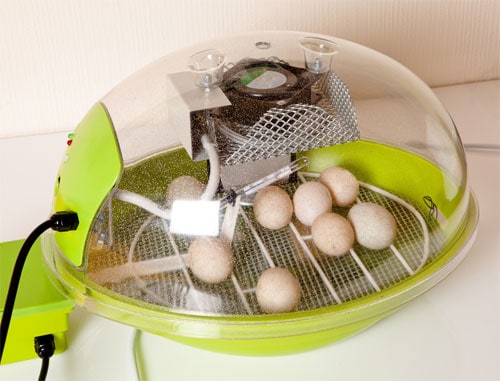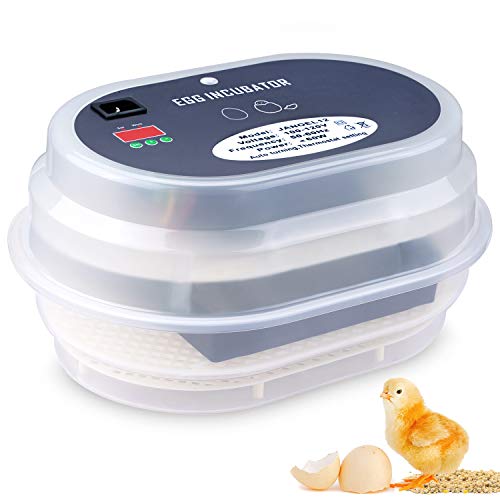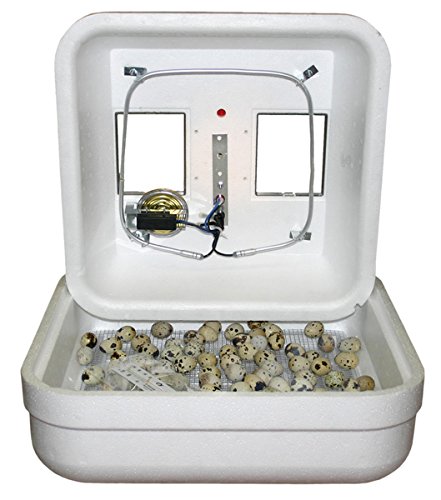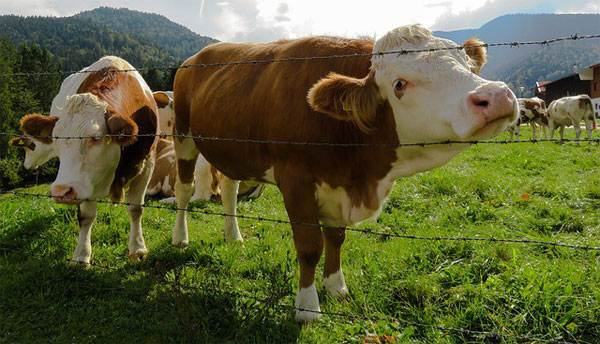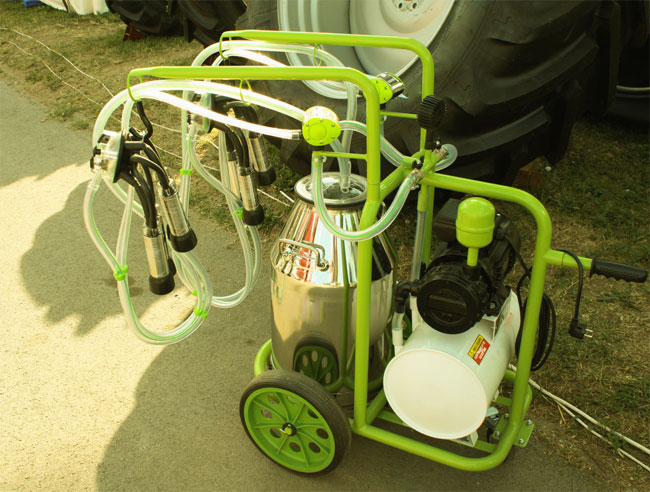Finding one of the best chicken egg incubators can be quite challenging these days, especially since there are so many that you should definitely bear in mind. After doing extensive research, we have created a comprehensive guide that you can read in the second half of this post.
But before anything, we’d like to show you some models that are worth considering. They are capable of excellent performance, they’re easy to use, and they seem to have all the right features. That’s why they’ve received a lot of critical acclaims.
Without further ado, here are some chicken egg incubator reviews to help you in your search for the perfect one.
Image | Product Name | Egg Capacity | Price |
1. MagicFly Digital Mini Fully Automatic Egg Incubator | 9-12 Eggs | ||
2. Brinsea Products Mini II Advance Automatic 7 Egg Incubator | 7 Eggs | ||
3. HBlife 9-12 Digital Fully Automatic Incubator for Chicken Eggs | 9 Eggs | ||
4. GQF Thermal Air Hova-Bator | Around 40-50 Eggs | ||
5. Brinsea Products USAG47C Ovation 56 EX Fully Automatic Egg Incubator | 56 Eggs |
Contents
Top 5 Best Chicken Egg Incubator Reviews
Raising chickens can make you feel more or less self-sufficient in a world where everything is bought at the supermarket.
With so many manufacturers offering a broad range of models, sizes, and prices for the best egg incubator out there, it can be hard to pick the perfect one.
The top-rated choices listed below will at least give you a clue as to what you should be looking for.
#1. MagicFly Digital Mini Fully Automatic Egg Incubator
Boasting a straightforward design, this option should be at the top of your list, especially if you aren’t looking to hatch hundreds of eggs at once. The incubator is so easy to use that even kids can handle its operation.
Moreover, the product can accommodate as many as twelve eggs. The spaces devoted to the eggs themselves are quite spacious, which is why you can use the unit for hatching chicken, duck, or goose eggs.
Although it might seem more or less fragile or basic, the fact is that the MagicFly alternative comes with a solid molded construction. This means that you’ll get plenty of performance and durability from it over time.
Pros
- Comes with an automatic egg turner
- Automatically controlled temperature
- The incubator can be used right out of the box
- The compact design lets you use it anytime and anywhere
- CE and C-tick approved
Cons
- You have to calibrate the temperature to get the right results.
#2. Brinsea Products Mini II Advance Automatic 7 Egg Incubator
If your needs are even more limited and you don’t have to hatch many eggs, this small incubator should be right up your alley. The compact design isn’t something to be concerned over, though, since it takes the cake when it comes to durability and reliability.
Like others we’ve showcased here, the Brinsea option is fully automatic. This means that the eggs are turned without you needing to tend to the task. Being menu-driven, you have complete control over the hatching process with an easy-to-customize program.
Plus, the Brinsea Mini II comes with a microcontroller that’s in charge of maintaining the current temperature, length of the incubation period, and turning frequency. Your only responsibility will be adding water so as to maintain the right humidity level.
Pros
- The clear dome design lets you see how things are progressing
- The turning angles and intervals are fully adjustable
- It incorporates a Biomaster antimicrobial additive for safe and optimal hatching
- Can hatch up to 7 large eggs and with an additional insert, 12 small ones
Cons
- It’s more expensive than other similar models.
#3. HBlife 9-12 Digital Fully Automatic Incubator for Chicken Eggs
Not all models have to cost a pretty penny, so if you’re searching for a chicken egg incubator that doesn’t ruin your budget, this one should fit the bill. It can hold up to 9 eggs. It’s easy to use, and more importantly, easy to clean, so it requires little effort on your end.
As for the thermometer it is outfitted with, you’ll be glad to know that it comes with a clear and intuitive display. Therefore, you have control over the process without having to interrupt it.
Thanks to its compact design, you can place this incubator anywhere in your house or in your yard. One thing we’d like to note is that this model should be used solely in North America as it comes with a US plug.
Pros
- User-friendly design makes it speak to less tech-savvy people, too
- It can be used anywhere thanks to its small size
- It can accommodate up to nine chicken eggs
- CE-approved for safety
- Made of durable materials
Cons
- The areas around the electronic bits can be a little hard to clean.
#4. GQF Thermal Air Hova-Bator
As one of the smallest and most economical incubators currently available, the GQF alternative is another that you should bear in mind. The brand is widely known for making quality products, so if you’re in the market for a durable unit, you should write this one down on your list.
The neat thing about this incubator is that it comes with two windows on the top, which means that you can keep an eye on the process and even see when it’s time to take out the hatched chicks.
Because it doesn’t come with the same compartments that most other options in this line are designed with, the Air Hova-Bator takes the cake when it comes to versatility. That’s why you can use it for any type of poultry eggs, from chicken to quail, but also for reptile eggs.
Pros
- Very well-ventilated since it draws fresh air through the bottom vent
- Heated air is released through the exhaust vent at the top of the design
- The temperature is maintained correctly
- Reliable and durable thanks to the rugged construction
- Comes with two windows for easy checkups
Cons
- It doesn’t include a built-in fan.
#5. Brinsea Products USAG47C Ovation 56 EX Fully Automatic Egg Incubator
If you want to take your egg hatching to a whole new level, the Brinsea Products unit we’re reviewing here is a great professional choice. It has a capacity of 56 chicken eggs, which means that you can use it for extensive farming.
As for its construction, this one is made from ABS plastic, but it is built to stand the test of time. Plus, you can control the process thanks to the digital system it comes with at the top. You can easily check on the humidity, turning status, and temperature.
Additionally, this incubator is also very easy to put together and clean. It can be disassembled completely, so you can take out every part and clean it individually. The product includes everything you might ever need.
Pros
- It has one of the largest capacity out there – 56 chicken eggs
- Digital display of humidity and periodic cooling
- Comes with programmable automatic egg turning
- Made to last for as long as possible
Cons
- Cleaning between the top layers is somewhat challenging.
Buying Guide
No matter the number of chicken egg incubator reviews that you might have read, it can still be a little difficult to tell which one addresses your specific needs. To make it easier for you to make up your mind, we’ve created a straightforward guide packed with all the features you need to consider.
Capacity
How many eggs are you looking to hatch? If this is the first incubator you’re looking to invest in, you might have to start small. Some units can accommodate just three to twelve eggs whereas others are more spacious. The second can hatch as many as fifty or even a hundred eggs.
Bigger might seem to be better at first glance, but the truth is that you’ll have to do something with all of those chicks. If you can’t raise them into chickens later on or sell them right after being hatched, you will lose money.
If you raise chickens for eggs or meat professionally, getting a sizable option makes sense for you.
Manual vs. automatic
Almost every model you might come across these days is automatic to some extent. But not all of the tasks can be handled by the machine unless it is fully automatic.
For example, while some can do a good job of maintaining the temperature and the humidity, they might not turn the eggs. So, you will have to do that yourself.
Some might do all of this, but they might not come with a fan, which makes maintaining the right humidity and temperature levels impossible.
In the end, you have to consider the amount of effort that you’re willing to put in the process to decide whether a fully or partly manual or fully or partly automatic device is the right one for you.
Easy operation and cleaning
While many of the units that we have come across now come with a digital display where you can see every little detail you need for a perfect hatching process, not all are so user-friendly. Some are still analog, instead of digital.
This is an important factor to keep in mind if you want everyone in your family to be able to use a chicken egg incubator with ease. No matter if they are tech-savvy or not, they can make the most of the product if it’s straightforward.
As for ease of cleaning, you probably don’t want one of those models that come with a thousand tiny pieces that you have to take out and clean and disinfect individually. The simpler the design, the better, in this case. Some take the cleaning task to a new level by including antimicrobial additives or surfaces.
In any case, it’s a good idea to check the user manual to see what cleaning solutions you should use and which ones you should avoid. Some cleaners can be aggressive and can cause the metal parts to rust.
Durability
The material that the incubator is made of has a lot to say when it comes to estimating the way the product can stand the test of time. Those that are made of plastic tend to last less than their metal counterparts.
It’s the same with styrofoam, which wouldn’t be a bad material if it weren’t so easy to dent or scratch. Plus, it’s also hard to clean.
The warranty that the unit is backed by can also be a good indicator of how long it’s supposed to last. If a brand is offering a 5-year warranty on its incubator, it goes without saying that you can rest assured that it will last. At least the company will service it for free if it gets damaged.
Versatility
As you might have noticed from some of the products that we’ve showcased in our selection, some come with crates to put your eggs in while others don’t. If you intend to make the most of your incubator, it might be a good idea to get extra containers.
This is even truer if you raise not only chickens but also geese or ducks, whose eggs tend to be a lot larger than those of chickens. Quail eggs are also quite smaller than those of any of these species, so do keep that in mind.
FAQs
How to use a chicken egg incubator?
The way you’re supposed to use a chicken incubator depends on the type you’ve invested in. With an automatic choice, things are a lot easier since you can just set the right temperature, humidity, and turning frequency, and you’re all done.
The manual ones call for a little more effort on your behalf. You will even have to create a schedule for turning the eggs manually, using a fan, or other such activities.
How many days to hatch a chicken egg in an incubator?
It takes around 21 eggs for an egg to hatch in an incubator. The more efficient models are capable of hatching eggs in around 19 days, so they shorten the hatching period.
When do I turn the temperature down on a chicken egg incubator?
The temperature inside the incubator needs to be turned down to 95 degrees F once all of the chicks have hatched. It takes a little time for them to dry, too, and when you move them into the brooder, you will have to run them at a temperature of 90 to 95 degrees.
How to care for a chicken incubator?
Regular cleaning needs to be ensured to prevent microbial contamination, which is a common mishap with hatching eggs.
However, once the process has started, you aren’t supposed to take the eggs out and clean the incubator. If you do, the temperature variations are going to affect the hatching efficiency.
So, once every 21 days or so, you will have to clean the chicken incubator. For good measure, we also recommend checking on the electrical parts and cables just to make sure that they are functioning properly.
What should the humidity be in a chicken incubator?
While the perfect temperature for the hatching process has to be maintained at 99.5 degrees Fahrenheit, the humidity needs to be maintained at 40 to 50 percent. This is the right one for the first 17-18 days of the hatching. In the final days of the process, the correct humidity is at 65 to 75 percent.
Conclusion
We hope that our guide, along with our product selection, has helped you in your decision-making process.
Use all of the resources you have available and read as many reviews as you can. This will all make getting one of the best chicken egg incubators out there a less tricky endeavor.
Related Posts:

